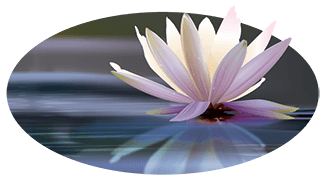Skin Aging
There are two distinct types of aging:
Intrinsic (internal) aging – caused by the genes we inherit. This is the natural aging process, which normally begins in our mid 20’s.
Extrinsic (external) aging – caused by environment and lifestyle such as:
- Over-exposure to the sun’s rays
- Alcohol consumption
- Smoking
- Late nights
- Environmental damage
Extrinsic aging often acts together with the normal aging process to prematurely age skin.
Signs of aging:
- Fine lines and wrinkles
- Thin and transparent skin
- Sagging skin
- Dry skin and broken capillaries
- Age spots
- Spider veins
- Rough and leathery skin
Your Question
Q: Can skin aging be reversed?
A: No matter what you hear, what you read, or what you want to believe, skin aging cannot be reversed. But there are steps you can take to control the situation. The appearance and signs of skin aging can be minimized, and further skin aging can be controlled. New scientific research has uncovered ingredients that work on a biochemical level to control skin aging, all while minimizing current signs of skin aging. Some of these ingredients include antioxidant vitamin C & E, Glucosamine, Peptides, Lactic Acid, Retinyl Palmitate, and of course, daily use of an SPF. Speak with your professional skin therapist about a customized regime to help control the signs of skin aging.
Q: What are free radicals?
A: Free radicals are responsible for skin aging in the form of wrinkles, breakdown in collagen and elastin, and inflammation. Also known as Reactive Oxygen Species (ROS), free radicals are highly reactive, unstable molecules that attack and steal from stable molecules. Unstable means the free radicals don’t have an even number of electrons, and are constantly in search of an extra electron to steal to become stable. For every free radical that ‘steals’ from a stable molecule, another free radical is formed, causing a cascade of free radical formation. Fortunately, antioxidants (vitamin C and E) can help stop the free radical cascade and control this trigger of skin aging.
Q: Why is collagen important in skin?
A: Collagen is a protein produced in the body that connects, supports and helps give firmness and strength to the body’s tissues. By the time we reach our 30th birthday, we will start to lose 1% of collagen with each subsequent birthday. Collagen production slows as we age, which impacts the skin’s ability to repair itself, triggering a loss of elasticity. Because of collagen’s role in firmer, taut skin, many skin products include ingredients that help stimulate collagen production.
Q: What’s the difference between intrinsic aging and extrinsic aging?
A: The signs of skin aging are caused by intrinsic and extrinsic factors.
Intrinsic aging is the normal, genetic process of physical change over time, and begins the minute we’re born. Extrinsic aging is aging caused by external factors like our environment and lifestyle.

[…] asked skin care specialist Mee Chong, of mee-beauty.com who says that unlike sun damage, SPF is not cumulative. So, if you put on an SPF […]